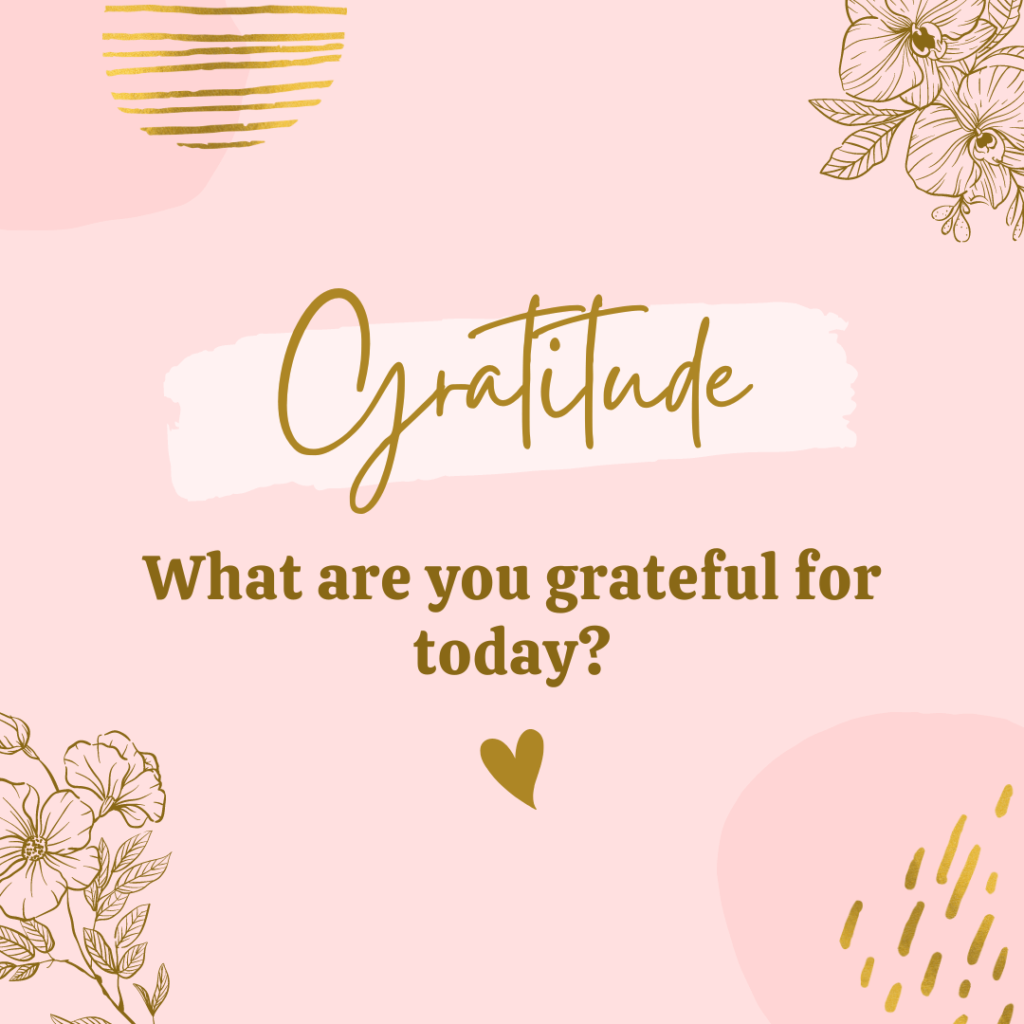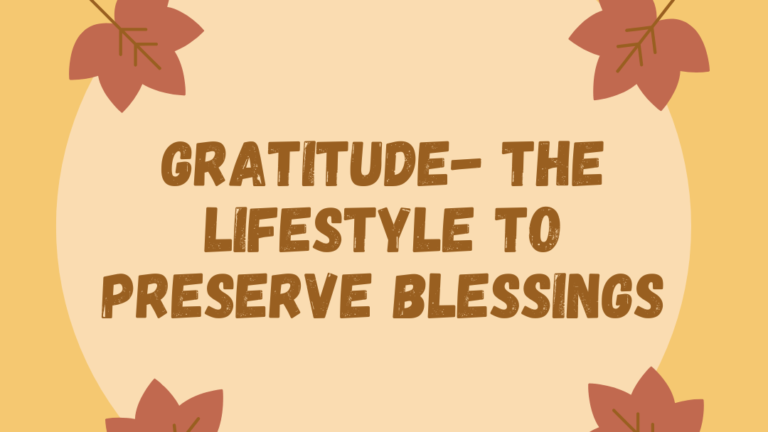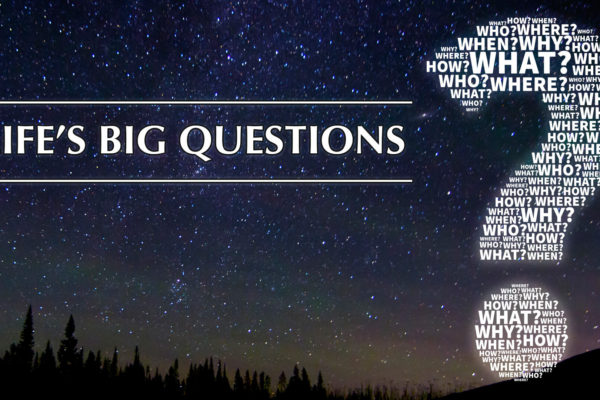Introduction- Shukr the Arabic word for gratitude is the best manner to preserve one’s blessings and increase them. Allah (SWT) tells us many times in The Quran to be grateful to Him for our benefit.
Why should we do the shukr of Allah (SWT)?
Allah (SWT) is the One who created us, He gave us everything that we deserve or don’t deserve. Gratitude(Shukr) is the main ingredient of our life, it plays the same role as sugar in tea. Similarly, when we add shukr to our life it become happy and it becomes sweetened. Shukr gives us energy, makes us do more, and gives us renewed strength. On the other hand, if a person is ungrateful he doesn’t thank Allah (SWT) he doesn’t feel the excitement in his life. In other words, we are missing energy in our life. The essence of happiness, Force, Energy, Strength, positivity, Drive, Excitement, The Power are all positive effects that come into our lives when we adopt Shukr as our lifestyle.
Virtues of Gratitude in the Quran
Allah (SWT) encourages us to be grateful in The Quran:-
“And we shall reward the grateful” (3:145)
Meaning “We shall award them with our favor and mercy in this life and the Hereafter, according to the degree of their appreciation (of Allah) and their good deeds”.
“If you are thankful then I will increase you but if you are ungrateful surely my punishment is intense.” (14: 7)
Allah said “If you give thanks, I will give you more” meaning, “If you appreciate my favor on you, I will give you more of it,” Gratitude and thankfulness breeds contentment and fulfillment,
Allah(SWT) says that when we thank Him, we are increasing. The increase isn’t necessarily physical but internal, and that is the best type of gain to be internally fulfilled.
Allah (SWT) is explaining the significance of being grateful and how it can bring virtues to human beings as it was practiced by The Prophets. One such mention is the mention of Prophet Suleiman (AS) and The Amazing du’a of King Suleiman (AS)
“My Lord, enable me to be grateful for Your favor which You have bestowed on me and upon my parents” (27:19)
Instead of focusing on what we lack, we should look for the many blessings Allah has already given us. We all have good attributes and special qualities that are unique to us bestowed by Allah (SWT).
Prophet (Suleiman AS) was given a kingdom as no one had ever seen. Allah also granted him the power to command the winds to control both men and jinn and he could also understand the speech of ants. The power that Prophet Suleiman (AS) had would’ve corrupted many men but it didn’t corrupt him because he was always grateful.
Allah (SWT) guides us to be grateful for our benefit as Allah says in The Qur’an
“Indeed, we guided man to the way whether he be grateful and whether he be ungrateful” (76:3)
In another very profound ayah Prophet Suleiman (AS) said “…This is by the grace of my Lord; to test me whether I am grateful or ungrateful, truly My Lord is free of all needs, Supreme in honor!” (27:40)
What did Suleiman (AS) do we need to pay attention to when he saw his throne right before his eye? He said, “This is the time Allah (SWT) is testing me on whether I am grateful or ungrateful”. When we receive any blessing whether it’s considered small in our eyes but any blessing is always huge we don’t consider it as always huge. When we receive any blessing our reaction should be thanking Allah right away because the blessings we receive are the tests from Allah (SWT) & Allah (SWT) is testing us whether we’re grateful or ungrateful.
Whoever is grateful his gratitude is only for the benefit of himself which means when we are grateful for something it’s not going to make any difference to Allah (SWT) it is us who will benefit. Gratitude works like glue that sticks the blessing to us. Gratitude doesn’t benefit Allah (SWT) it is for our benefit.
Virtues of Gratitude in The Hadith
In a hadeeth, The Messenger of Allah (SAW) said: “Love Allah for what He nourishes you with of His blessings” (At Tirmidhi, Book46, Hadeeth 3789) means Love Allah because of the blessing He provides to you. So, Love Allah naturally for the blessings so you can feel a sense of gratitude to Allah (SWT)
Our culture & society today bombards us with behavior that focuses on things we lack. But, if we begin with how we are blessed rather than focusing on what we lack, we’ll feel the same desire to thank Allah(SWT) as Prophet Suleiman(AS) did. Remember wherever we focus our mind on will feel exactly the same. If we begin by asking ourselves better questions, we will get better results.
How can we become grateful?
The extreme opposite of shukr is kufr disbelief in Allah (SWT). Allah (SWT) tells us to be grateful through His remembrance, Allah (SWT) says “So remember Me, I will remember you and be grateful to Me and do not be ungrateful to Me”(2:152)
We’ve to remember Allah (SWT), Do zikr of Allah (SWT) and The best zikr of Allah (SWT) is The Qur’an. When you spend time learning the book of Allah (SWT) this is what is zikr of Allah (SWT). When we do zikr of Allah (SWT) through Qur’an then Allah (SWT) also tells us to be grateful. This Qur’an is not being given to everyone, Qur’an is for those who want it this is such a huge honor that Allah (SWT) has given us and because of this honor “Be grateful and Do not deny Allah (SWT)”
So, we can display the attribute of Shukr to Allah (SWT) by remembering Him and making Qur’an an integral part of our lives.
Whereas in regards to the creation of Allah we should display our gratitude by treating people graciously and if we want to analyze our gratitude towards people then we should look at “How we treat people in our lives?”
In a narration from Prophet (SAW) he said “Whoever does not thank people doesn’t show gratitude to Allah”
There’s possibly no way that you can be grateful to Allah (SWT) and not be grateful to people, you can’t manifest that quality.
Gratitude in Our Personality
So, how can we display the attribute of gratitude through our personality? Gratitude can be displayed in 3 ways:-
Shukr bil qalb (with the Heart)-
We can feel a sense of gratitude and for that, we’ve to contemplate those blessings and sometimes we have to take a step back & appreciate what has been given to us even by the people in our life so be introspective. We’ve to feel a sense of gratitude and be humbled by the blessings of Allah (SWT) upon us and what people show us. We need to feel gratitude for that in our heart.
Shukr bil lisaan (With the tongue)-
To thank Allah(SWT) and thank people in your life with the tongue means we say that I am grateful for such and such blessings. We make mention of that blessing and thank Allah(SWT) for that blessing and also thank people with our tongue for that blessing. Express your gratitude to people & Allah (SWT).
Shukr bil Aa’maal(With the deeds)-
The truth of gratefulness should be shown with our deeds as well. Allah(SWT) gave us examples of Prophets in The Qur’an. An example of Musa(AS), When Allah chose Musa(AS) to carry on his task to approach Pharaoh, The response of Musa(AS) was that “My tongue is not eloquent so send my brother Aaron” as a support system and that “they would judge him by where he killed a person of pharaoh mistakenly” so because of that they may not take the message seriously (Shu’raa: Ayahs 13-14)
Allah (SWT) tells Musa (AS) “Go both of you with our signs, Indeed we are with you” (Shu’raa:15)
Here Allah (SWT) is telling Musa (AS) to examine & focus on the blessing he has instead of focusing on his weaknesses & Allah supported Musa (AS) in his life miraculously. So, Ingratitude keeps you burning whereas gratitude sets you free. It shifts your focus from what you don’t have to the blessings you have.
So, whenever we are faced with a situation like how people are going to perceive us, The best thing to do is to look at the blessings that Allah has given us whether we are deserving of them or not.
Psychologist’s Perspective on Gratitude and Examining
Gratitude is considered a moral effect because it results from and stimulates behavior that is motivated by a concern for other people’s well-being (McCullough, Kilpatrick, Emmons, & Larson, 2001).
Psychologists talk about examining the evidence “By sitting & talking, looking around all the blessings you have in your life and how these blessings pale & how your trials pale in comparison to the blessings”
Counting blessings encourages people to interpret life experiences and events from the aspect of gratitude and subtly acknowledges the favors granted by others. Counting blessings can significantly improve gratitude (Emmons & McCullough, 2003).
Best way to show gratitude

The best way to show gratitude through our actions is to make it a habit to write at least 3blessings every single day that Allah has blessed you with. If you do this for 21 days you’ll start shifting the way your neurons look at your perspective in life and you’ll have a positive mindset toward every situation in life.
Conclusion
Focus on all the blessings and good things in each & every situation as Prophet Muhammad (PBUH) instructed us to say “Alhamdulillah” on daily basis. Prophet (SAW) said, “Allah is pleased with His servant if when he eats something he thanks Allah for it, and when he drinks he thanks Allah for it”(Muslim).
Be thankful for all the blessings that Allah gave us and the trials that brought us back to Allah. He has indeed blessed us with innumerable blessings. Thank Allah for the smallest and the largest blessings in life and we will witness them increasing with loads of Goodness, happiness, well-being, and prosperity.







Absolutely beautiful Mashallah. A great reminder Alhamdullillah. May Allah continue to innovate your talent and bless you in many ways to touch other hearts to enable them journaling shukr ameen thuma ameen.
I have really enjoyed the article . Jazaka Allah Kher.